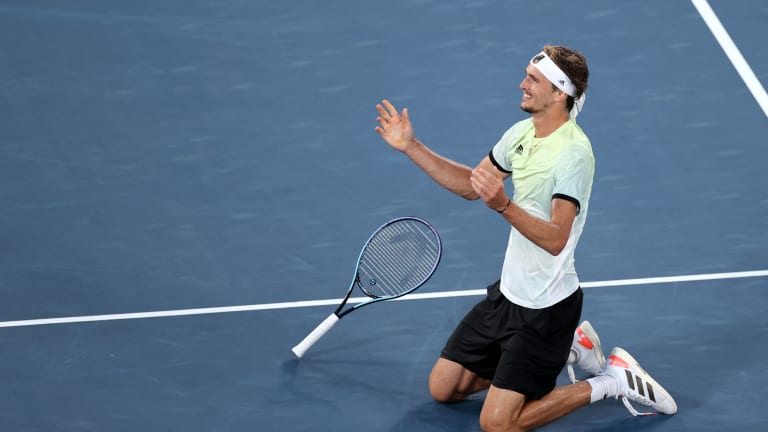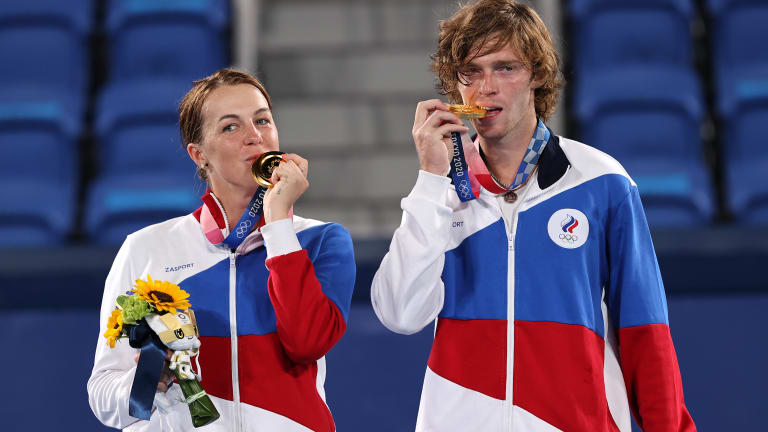Olympic Tournament
In Tokyo, Zverev broke through Djokovic’s wall of invincibility, while Rublev and Pavlyuchenkova reminded us why they play the Olympic Games
By Aug 02, 2021Olympic Tournament
How Novak Djokovic’s Olympic run triggered memories of his fellow Golden Slam winner, Serena Williams
By Aug 10, 2024Olympic Tournament
11-9, again: With Dan Evans, Andy Murray saves more match points, keeps career alive at Olympics
By Jul 30, 2024Olympic Tournament
Carlos Alcaraz, Rafael Nadal clinch second victory in Paris Olympics men’s doubles
By Jul 30, 2024Olympic Tournament
"Cheated" Coco Gauff loses cool at Olympics, exits to Donna Vekic in Paris
By Jul 30, 2024Olympic Tournament
Rafael Nadal aims to level head-to-head with Novak Djokovic at Paris Olympics on Monday
By Jul 28, 2024Olympic Tournament
Rafael Nadal and Novak Djokovic to clash in second-round blockbuster at Paris Olympics
By Jul 28, 2024Olympic Tournament
Tennis guide: who is playing the 2024 Paris Olympics at Roland Garros?
By Jul 04, 2024Olympic Tournament
Alex de Minaur, Ajla Tomljanovic to lead Australia's tennis team to Paris Olympics
By Jun 26, 2024Olympic Tournament
Novak Djokovic is confirmed for Paris Games, Serbian Olympic Committee says
By Jun 18, 2024In Tokyo, Zverev broke through Djokovic’s wall of invincibility, while Rublev and Pavlyuchenkova reminded us why they play the Olympic Games
This year the mixed brought two popular and personable Russians together for the first time.
Published Aug 02, 2021
Advertising
Advertising

Zverev the player accomplished much this week, but the allegations of abuse made last year by his former girlfriend Olya Sharypova are also part of his story.
© Getty Images
Advertising

This year the mixed brought two popular and personable Russians, Andrey Rublev and Anastasia Pavlyuchenkova, together for the first time.
© Getty Images